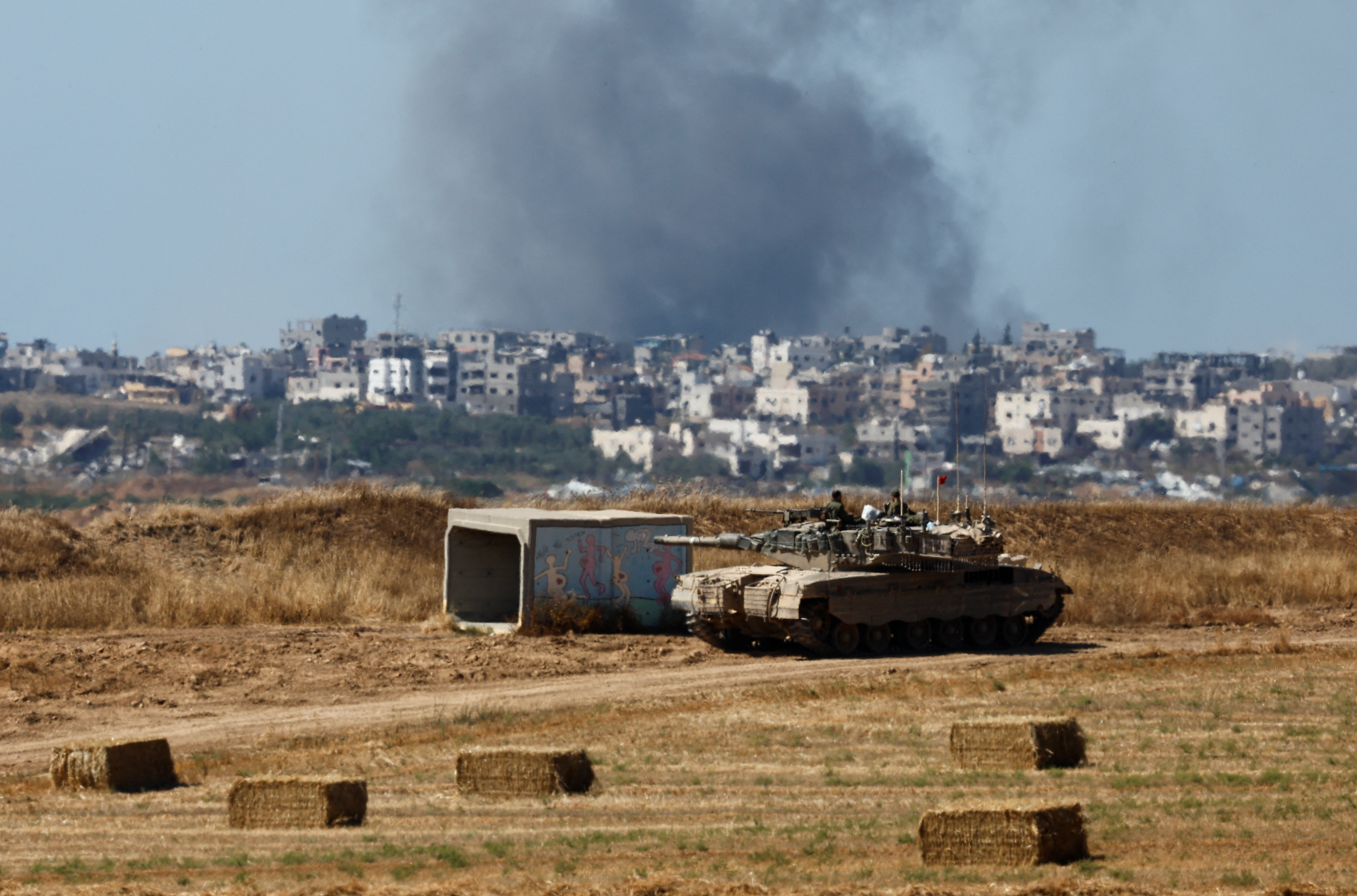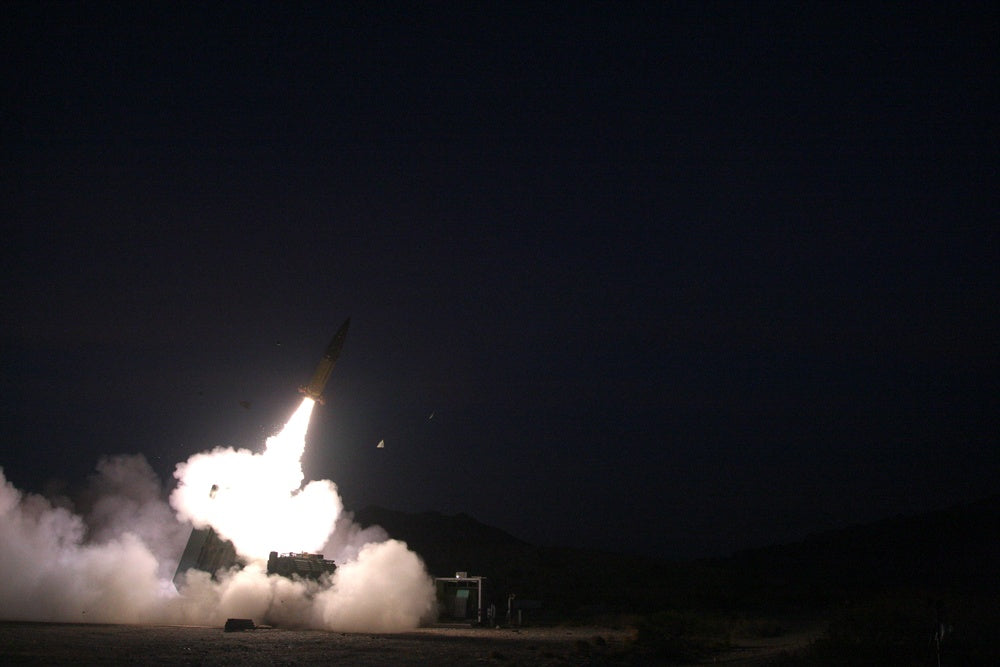
Israel reopens Gaza food sales as Rafah raid chokes aid
PHOTO CAPTION: An Israeli tank holds a position as smoke rises in Gaza, amid the ongoing conflict between Israel and the Palestinian Islamist group Hamas, near the Israel-Gaza border, in Israel, May 15, 2024. REUTERS/Amir Cohen
By James Mackenzie
JERUSALEM (Reuters) - Israeli ministers dismissed Friday's ruling by the International Court of Justice ordering Israel to cease its military operation in the southern Gaza city of Rafah, vowing to continue fighting to free its hostages and defeat Hamas.
Friday's ruling by the World Court was the latest in a series of steps in recent weeks that have deepened Israel's international isolation over its conduct of the war in Gaza, which has killed more than 35,000 Palestinians, according to local health authorities.
Prime Minister Benjamin Netanyahu's office rejected the allegations in the case brought by South Africa that Israel was carrying out genocide in Gaza as "false, outrageous and morally repugnant"
"Israel is acting based on its right to defend its territory and its citizens, consistent with its moral values and in compliance with international law," it said in a statement.
It said operations in Rafah would not be conducted in a way that "may inflict on the Palestinian civilian population in Gaza conditions of life that could bring about its physical destruction in whole or in part."
The war, triggered by the Hamas-led attack on communities around the Gaza Strip on Oct. 7 last year, has caused a widening gulf between Israel and much of the rest of the world and serious strains between Netanyahu's government and its closest allies, including the United States.
Rafah, close to the border with Egypt, had taken in more than one million Palestinians displaced from their homes by the Israeli ground assault until an evacuation order by the military earlier this month sent hundreds of thousands to seek refuge in camps in central Gaza.
Outside Israel, there has been shock at the harrowing television images of the suffering in the ruins of Gaza, where aid agencies, struggling to get enough emergency supplies in, report a growing humanitarian crisis.
For Israelis, the devastating attack by Hamas-led gunmen that killed some 1,200 people in the deadliest day in Israel's history, remains a traumatic scar, made worse by the fate of around 250 hostages seized and taken into Gaza.
"The fact that they're even having this conversation is quite ludicrous, to be honest," said 39 year-old Adi Levanon, who works in start up investments in Tel Aviv.
"I think that we have women, young women, we have men, we have elderly individuals that have been take hostage. It makes no sense for country that's trying to defend and protect its people to not get them back home," he said.
"CONTINUE FIGHTING"
However the immediate practical impact on Israeli policy is likely to be limited, beyond reinforcing a defiant national mood already stoked by the International Criminal Court prosecutor's decision to seek arrest warrants against Netanyahu and Defence Minister Yoav Gallant.
Internal Security Minister Itamar Ben-Gvir, who heads a hardline nationalist religious party that is key to the stability of Netanyahu's coalition, dismissed the ruling.
"Our future doesn't depend on what the Gentiles say but rather what the Jews do," he said on social media platform X, quoting a celebrated remark by David Ben Gurion, Israel's first prime minister.
The case before the ICJ was brought by South Africa on the basis that by killing Palestinians in Gaza, causing them serious mental and bodily harm and creating conditions of life "calculated to bring about their physical destruction", Israel is committing genocide against them.
Israel calls the allegations outrageous, saying it does everything possible to protect civilians and accusing Hamas of deliberately using civilians as human shields, a charge denied by the Islamist group which has controlled Gaza since 2007.
By coincidence or not, shortly after the ruling in the Hague was read out, residents in Rafah, where the Israeli army has been carrying out probing attacks on the city's edges, reported a particularly heavy air strike.
Israeli forces have been massed at the city's edges for weeks ahead of a long announced operation to destroy the four remaining Hamas battalions the army says are based there.
However, heavy fighting has also continued in other areas of Gaza, notably in the northern area of Jabaliya, where the army said earlier it had recovered the bodies of three hostages killed on Oct. 7.
War cabinet minister Benny Gantz, who spoke with U.S. Secretary of State Antony Blinken, said Israel had set out on a "just and necessary campaign" following the Oct. 7 attack and said it would keep going, despite the ruling.
"The State of Israel is committed to continue fighting to return its hostages and promise the security of its citizens - wherever and whenever necessary - including in Rafah," he said in a statement.
(Additional reporting by Emily Rose in Jerusalem and Rami Amichay in Tel Aviv; Editing by Sharon Singleton)









